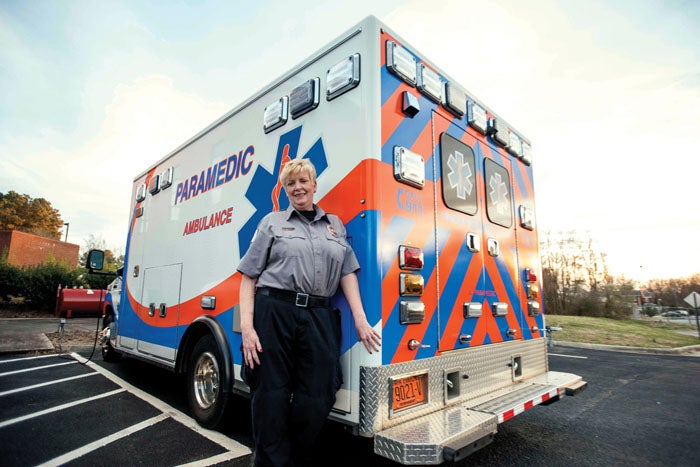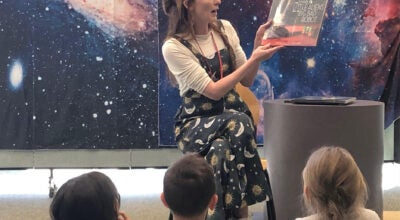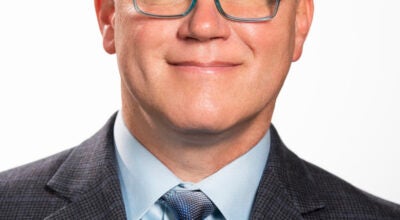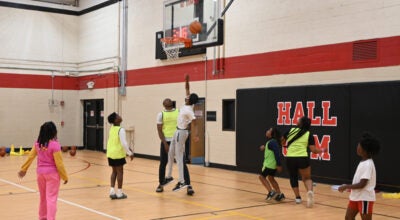Compassion, teamwork help paramedic heed her calling
Published 6:20 pm Monday, February 18, 2019

- Sally Kersey enjoys her second career as a paramedic for the Rowan County EMS. Jon C. Lakey/Salisbury Post
By Maggie Blackwell
For the Salisbury Post
SALISBURY — Sally Kersey is tall and lanky. Oftentimes, women in uniforms look clunky, but Kersey’s paramedic outfit suits her well.
So does the career.
Kersey graduated from North Rowan High School in 1981 and went directly to Rowan-Cabarrus Community College, where she studied executive secretarial skills. She snagged a job at PPT in Lexington and worked there more than 20 years.
In 2006, PPT made massive layoffs, and Kersey lost her job at 40 years old.
“What am I going to do?” she said at the time.
But having always been fascinated with medicine, she went back to RCCC and took EMT courses. She worked as an EMT for a few years, then went back and studied to be a paramedic.
There are different levels in the care that EMS workers can give. A basic EMT can apply bandages, take vital signs, help prepare an IV, and help attach leads for testing. An intermediate EMT can do all those things as well as start an IV line, administer limited medications, and apply leads, but not read results. A paramedic can “do it all.”
“An EMT is great support,” Kersey says. “They’re like another set of hands, wonderful help.”
Kersey says teamwork is vital to providing the best care for patients.
“I’ve been very fortunate to have excellent partners,” she says. “The partner I have right now is sent from heaven. We work in tandem. It’s total teamwork. You have to have teamwork to get our job done. If you work with another person, it’s a little harder, but it works out.
“We are meant to be together. I spend more time with him than my family. I love his wife and family, and he loves my family. That’s what makes this job fun. You have to like who you work with.”
Members of her team, she says, are all family-oriented.
“There’s no arguments. We all get along fine. Our chief says, ‘I don’t have to worry about y’all – if you need me, you call me.’ It’s a terrific team.”
Her battalion chief, Chris Richardson, says Kersey is a great member of the team.
“Her experience and professionalism are some of her strongest attributes,” Richardson says. “Sally is a great health care provider who advocates for her patients and supports our community.”
The schedule for paramedics is pretty complicated. They work 12-hour shifts two weeks of days, then two weeks of night shifts.
“We used to work 24 hours on, 48 hours off,” she says. “I was given an opportunity to go to 12-hour shifts. It’s nice to sleep in my own bed. This is the third year of this schedule. It took some getting used to, but it’s much nicer.
“My partner is older, too, and we’ll laugh and say, ‘The geriatric truck is here!’”
It seems to give the patients more confidence.
Their job is never the same any day, she says.
“Sometimes we go in and it’s just my special little ‘hold the patient’s hand and ride to the hospital.’ When it’s a baby call, I don’t care how long I’ve been in EMS, my adrenaline goes way up and stays up until I get them to the hospital. I can be nervous as can be, but no one knows that.
“I have great conversations in the back of that truck. I learn so much from these patients. I learn their pasts, sometimes about their families. I learn about their hurts. When they’re really sick, I learn how long they’ve been sick. They may tell me, ‘I’m fixing to die. I have no family, no one cares.’ I can say, ‘I care.’
“Someone says, ‘I’ve used drugs all my life and I’ve been clean for two days now.’ Maybe it’s true. Listening to people is wonderful. The stuff in my head I’ve learned from them is irreplaceable.”
Kersey seriously questioned herself on her first day as a paramedic, though she’d worked several years as an EMT.
“It was the worst call of my life.”
She pauses a few moments to gather her emotion.
“It was a very traumatic call. It did not end well. We took other patients from the accident into the hospital, and when I walked out of the hospital, I broke down. I didn’t lose it in front of any patients. I was able to wait until after. A supervisor looked me in the eye and said, ‘If this ever stops bothering you, you need to walk away from EMS.’”
It’s never stopped bothering her, she says.
Folks in emergency medicine have to learn to deal with their own personal adrenaline rush.
“I process it better now, since I’ve been doing it so long,” Kersey says. “But it’s the hardest thing to get used to in this job. When the bad call tones out, everything in your body is in super overload. It’s hard to explain the rush. You’re in the truck. My partner and I review what we’re going to do.
“You get where you’re going, and it’s not as bad as we thought, and we have an adrenaline dump. It makes you tired and shaky as a physical response to the adrenaline. Sometimes my partner and I look at each other, shrug and say, ‘Let’s go get something to eat.’”
There are some folks who don’t know how to get over the adrenaline, she says, but Kersey and her partner have learned over the years.
“That bad call I had, my supervisor asked me if I wanted to go home. I said, ‘No. The next call might be a good one. I might deliver a baby or save a life or hold a grandmother’s hand. No, I’m not going home.
“Sometimes my great big huge heart gets me in trouble,” she smiles, “but that’s who I am.”
Kersey holds lots of grandmothers’ hands. When folks fall in retirement homes, they have to be taken to the hospital. It’s a pretty frequent call.
Many other calls come in from people who just seem to be lonely. The older people are her favorite kind of call.
“Even if it’s a grandma who fell at the home and we’re required to take her to the hospital, and I hold her hand, that means something to me.
“Sometimes they have dementia. One offered to make me biscuits. I agreed, ‘Yes, I’d love some biscuits.’ That’s important, and it fills my heart up. … How could you not love that?”
Kersey’s mom died of Alzheimer’s disease.
“Maybe I have that compassion because of what I went through with my mother.”
Kersey says compassion is a vital quality in EMS workers.
“Some people do this as just a job. It can’t be just a job. You have to do this because you want to. You can’t just come in and work 12 hours and go home. It’s not that. You have to love it; you have to live it.”
She has a tattoo of the caduceus — the universal symbol for medicine ––on her wrist.
“Yes, it’s a calling,” she says. “I posted something on my Facebook the other day: ‘Some people spend their whole lives wondering if they’ve made a difference. Some don’t have that problem.’
“The only one who knows if you’re going to live or die is the Lord. But I can try to make a difference for them. That’s rewarding to me.”
She says the daily trauma she and her co-workers observe has bonded them for life.
“We all relate to each other. We all get it. When one of us goes through a bad call, every one of us will call, ‘Are you OK? Do you need to talk?’ We take care of each other.”
It can lead to real family members feeling left out, she says.
“There can be jealousy.”
EMS workers know they’re appreciated, Kersey says.
“Sometimes when we go out to eat, people pick up our tab and we never know who it was,” she says. “Some places give us free coffee and, while it means a lot to us, it’s OK. It’s our passion, and that’s what it’s all about. I get thanked in so many ways.”
Kersey is passionate about her coffee.
“We live on our coffee,” she says.
She thinks the best coffee in town is at Circle K. The beans are ground fresh for each cup, she says, and she drinks French vanilla cream with no sugar.
The love of her life, she says, is her son Brett. He’s 31.
“Ever since I’ve started this job, Brett suffers. If I hear of a wreck, I always call him. ‘Where are you? What are you doing?’ As a mother, your heart sinks to your feet. You never know. Now when I call him, he answers, ‘I’m fine, Mom, I’m fine.’
“At first he was excited about my work. Now sometimes he worries about me. When he sees the news, he worries. Today, though, it’s a risk for everyone to go to work. I feel safe.”
“You don’t choose EMS; it chooses you,” Kersey says. “It chose me, and I cannot live without it. …
“If you want a ton of money, this is not your thing. You have to do it for something you love and have compassion and a heart for. … That’s what it’s all about.”




